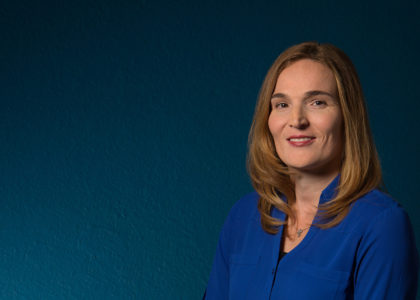The Consolidated Appropriations Act of 2021 (the Act), signed into law on December 27, 2020, includes $15 billion for Grants for Shuttered Venue Operators.
Qualifying applicants can receive grants equal to 45% of their gross earned revenue in 2019 up to $10 million.
Eligible entities include:
- Live venue operators and promoters;
- Theatrical producers;
- Live performing arts organization operators;
- Certain museums, zoos and aquariums;
- Motion picture theater operators; and
- Talent representatives.
In addition, the entity must:
- Have been fully operational as of February 29, 2020;
- Not have received a PPP loan on or after December 27, 2020;
- Demonstrate that it had at least a 25% reduction in earned revenue during at least one quarter in 2020, as compared to that same quarter in 2019;
- Be open or intend to reopen; and
- Make a certification that the uncertainty of current economic conditions makes necessary the grant to support ongoing operations.
Note that there are size, ownership and other restrictions that make certain entities ineligible.
Uses of the Grant
Grant amounts may be used for the following costs:
- Certain payroll costs;
- Rent obligations(for leases in effect before February 15, 2020);
- Utility payments;
- Worker protection expenditures(including operating or capital expenditures to facilitate the adaptation of the business activities of an entity to comply with requirements established or guidance issued by the Department of Health and Human Services, the Centers for Disease Control or the Occupational Safety and Health Administration, or any equivalent requirements established or guidance issued by a state or local government beginning on March 1, 2020, such as ventilation systems, physical barriers or an expansion of indoor, outdoor or combined business space);
- Interest payments on mortgages/debts incurred prior to February 15, 2020;
- Payments to independent contractors(capped at $100,000 in annual compensation for any individual employee of an independent contractor); and
- Other ordinary and necessary business expenses (including maintenance expenses, administrative costs, state and local taxes and fees, operating leases in effect as of February 15, 2020, insurance payments and advertising, production, transportation, and capital expenditures related to producing a theatrical or live performing arts production, concert, exhibition or comedy show, except that a grant cannot be primarily for such production-related expenditures).
Grant amounts cannot be used to purchase real estate or pay interest on loans originated after February 15, 2020. They also cannot be invested, re-lent or be used for political contributions.
Initial grants may be used for costs incurred between March 1, 2020 and December 31, 2021, and supplemental grants may be used for costs through June 30, 2022. Any initial grant proceeds not spent on allowable expenses within one year and any supplemental grant proceeds not spent within 18 months of disbursement must be returned to the Small Business Administration (SBA).
How and When to Apply
The SBA is not yet accepting applications, but we expect the program to open soon. The initial grant applications will be available to small businesses that have suffered the greatest economic hardship. The schedule for accepting applications is as follows:
|
First Priority (First 14 days of grant awards) |
Entities who suffered a 90% or greater revenue loss between April 2020 through December 2020 due to the COVID-19 pandemic. |
|
Second Priority (Next 14 days of grant awards) |
Entities who suffered a 70% or greater revenue loss between April 2020 through December 2020 due to the COVID-19 pandemic. |
|
Third Priority (Beginning 28 days after First and Second Priority Awards are made) |
Entities who suffered a 25% or greater revenue loss between April 2020 through December 2020 due to the COVID-19 pandemic. |
|
Supplemental Funding (Available after First & Second Priority) |
Recipients of First and Second Priority round who suffered a 70% or greater revenue loss for the most recent calendar quarter (as of 04-01-21 or later) |
Unrestricted; open to entities of any size:
|
Unrestricted, non-priority round (Begins 61 days after initial grant awards) |
Eligible entities of any size who suffered a 25% or greater revenue loss |
Supplemental grants will be available to individuals or entities that received an initial grant and whose revenue for the first quarter of 2021 is not more than 30% of the revenue for the first quarter of 2019. A supplemental grant will be equal to 50% of the initial grant, subject to the total $10 million cap.
Items to consider:
- If an entity receives a Grant for Shuttered Venue Operators, it is ineligible to receive a new PPP loan or other loan guaranteed under Section 7(a) of the Small Business Act.
- Individuals or entities receiving grants must retain records that document compliance with grant requirements for (i) four years for employment records and (ii) three years for all other records.
- Grants may be subject to additional compliance requirements such as Single Audits.
- Grants may be audited by the SBA, and in the case of fraud, will require repayment of misspent funds or result in legal action to collect.
If you have questions or concerns regarding this Client Alert, please contact Jim Quaid at [email protected] or your ORBA advisor.




















































































































